![]()
![]()
Recommended Reading
from Bruce
Paul Krugman: Treasure Island Trauma (New York Times)
Everyone is crying about budget deficits, yet corporations and the wealthy are still freely using tax havens to avoid paying taxes like the little people.
Kira Cochrane: Rise of the naked female warriors (Guardian)
The next day she went to a hilltop overlooking Kiev, and stripped to a pair of red denim shorts, worn with heavy boots, leather gloves, and a mask to protect her eyes. The Pussy Riot verdict was due that day, and in tribute to the Russian punk activists - and to mark her opposition to all religions - Inna proceeded to chop down a 13ft wooden cross that had been there since 2005.
Froma Harrop: Probing Intentions in the Cyber-fog (Creators Syndicate)
Two Ohio girls stand accused of saying vile, menacing things on Twitter -seriously accused.
Lenore Skenazy: High-Tech Spying on Your Kids (Creators Syndicate)
Of course, not everyone keeps a diary, so if you didn't, think of parental stalking this way: Did you ever talk on the phone after school? Maybe for hours? How would you have felt if your parents had silently picked up the line in their bedroom and listened in? So why do today's parents think cyberstalking is any different?
George Dvorsky: How Drinking Caffeine Could Save Your Life (io9)
An Australian study has shown that long distance drivers who drink caffeinated beverages, like coffee or energy drinks, are at a decreased risk of getting into vehicle accidents compared to those who don't. And the difference isn't small. Drivers hopped up on caffeine have a 63% reduced chance of crashing.
Isle of Wight girl Daisy Morris has flying prehistoric beast named after her (BBC)
A nine-year-old girl has had a prehistoric beast named in her honour after fossilised bones she found turned out to be an undiscovered species.
Eliza Krigman: In Praise of Snooki, Feminist Mom (Slate)
So rock on, Snooki, I salute you. You go on with your tacky self, trying to have a good time, pumping along the way, and keeping your vaginal stitches intact.
35 Facts About Mr. Fred Rogers (Mental Floss on YouTube)
A weekly show hosted by John Green, where knowledge junkies get their fix of trivia-tastic information. This week, John discusses 35 facts about our favorite neighbor, (Mr.) Fred Rogers, who would have turned 85 years old on March 20th.
David Bruce's Amazon Author Page
David Bruce's Smashwords Page
David Bruce's Blog
David Bruce's Lulu Storefront
David Bruce's Apple iBookstore
David Bruce has approximately 50 Kindle books on Amazon.com.
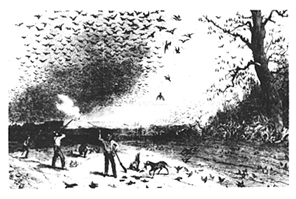

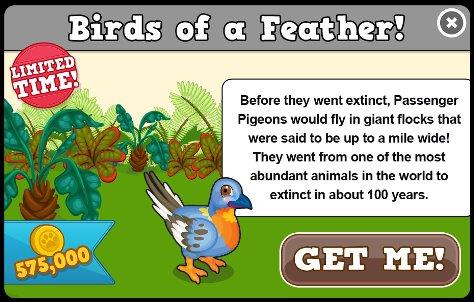
 wrote:
wrote:
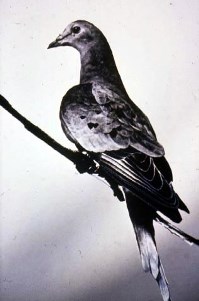
 replied:
replied:
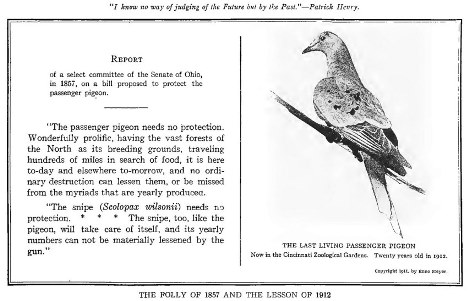
Reader Suggestion
Michelle in AZ
From The Creator of 'Avery Ant'

Selected Readings
from that Mad Cat, JD

In The Chaos Household
Last Night
Sunny, breezy and seasonal.
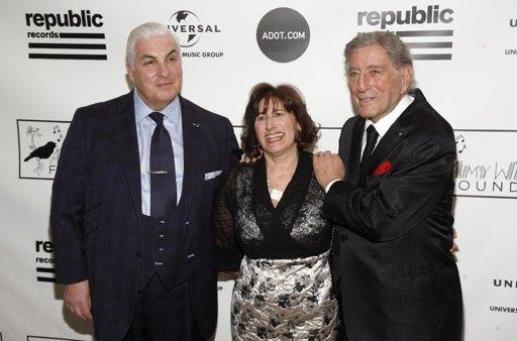
Tweets Against Guns
Yoko Ono
Yoko Ono has taken up arms against gun violence with a raft of Twitter postings, including a photograph of blood-stained glasses apparently worn by John Lennon when he was shot and killed more than 30 years ago.
"Over 1,057,000 people have been killed by guns in the USA since John Lennon was shot and killed on 8 Dec 1980," Ono, the former Beatle's widow, tweeted.
Below the message she included a photo of what appears to be Lennon's blood-stained eyeglasses, perched on a ledge with the Manhattan skyline as a backdrop.
The bold text above the graphic photo is black, except for the words "Over 1,057,000" and "John Lennon," which appear in bright red.
Yoko Ono
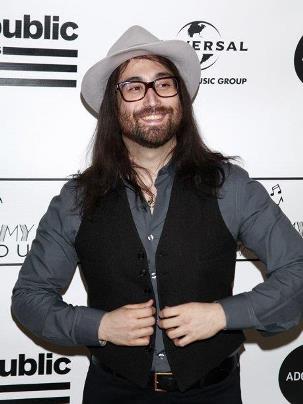
Sells House With Great TV Reception
Jack Nicholson
More than three decades after actor Jack Nicholson and a friend bought a historic Victorian home in a Colorado ski town, reportedly so they could get better TV reception, the two have sold the residence for $11 million.
Nicholson and record producer Lou Adler split the cost of the nearly 5,800-square-foot home in Aspen's West End in 1980. The home was later added to the National Register of Historic Places in 1987.
Nicholson and Adler already had homes in Aspen when they bought the residence, according to "Five Easy Decades," Dennis McDougal's book about the actor.
But neither home could get TV reception. So they went halves on the old Judge Shaw house, a historical landmark in a section of the mountain town that had better reception, chiefly so they could go there to watch Lakers basketball, McDougal wrote.
Jack Nicholson
Key Largo Film Festival
Stephen Bogart
Key Largo will celebrate the 65th anniversary of the movie "Key Largo" with a film festival honoring the movie's late star Humphrey Bogart.
Bogart was married to Lauren Bacall, who also starred in the movie. Their son Stephen Bogart is scheduled to headline several events at the Humphrey Bogart Film Festival in Key Largo May 2-5, including a May 2 cocktail reception that he will host with film critic Leonard Maltin. The reception will be followed by an outdoor waterfront screening of the movie.
The festival will feature screenings of additional Bogart films and other classics. Cruises will be offered on the original, century-old African Queen, the boat used in the Bogart film of the same name. Registered as a national historic site, the vessel was relaunched in 2012 following a $70,000 restoration.
Stephen Bogart will also host a "Casablanca"-themed Bogart ball May 4 at the Hilton Key Largo Resort with a Moroccan-themed dinner where Maltin will speak about Humphrey Bogart's contribution to the film noir genre.
Stephen Bogart
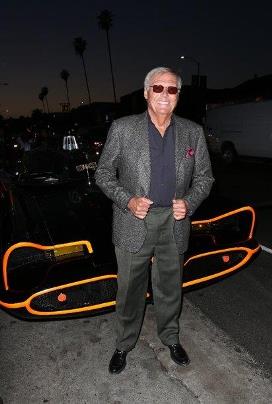
Wanna Feel Old?
Princess Caroline
Princess Caroline of Monaco (R-Homewrecker) on Friday announced the birth of her first grandchild -- a boy born to her non-royal son Andrea Casiraghi and South American heiress Tatiana Santo Domingo.
A statement from the palace said the baby was born on Thursday and that "both the mother and the child are doing well."
Andrea is Caroline's son from her second marriage, to Stefano Casiraghi, an Italian industrial heir killed in a speed-boat racing accident in 1990.
Caroline's brother Albert is the ruler of the tiny principality and Andrea Casiraghi is second in line to the throne as Prince Albert and his wife Princess Charlene, who got married in 2011, have not had any children yet.
Princess Caroline
Chairman To Step Down
FCC
The chairman of the Federal Communications Commission, Julius Genachowski, on Friday announced that he's stepping down in the "coming weeks," after a four-year tenure that's garnered mixed reviews for him and tangible progress in the industries he oversees.
The country's top telecommunications regulator told a staff meeting of his decision Friday morning. His impending departure was reported Thursday by several news outlets.
Genachowski, 50, was appointed in 2009 and has hewed a middle line between the desires of public-interest groups and the telecom industry, which hasn't enamored him to either side.
His tenure has seen continued adoption of broadband and ever higher Internet connection speeds, especially on the wireless side, but consumer groups saw the approval of Comcast's acquisition of NBC as a mistake, while AT&T Inc. suffered a severe blow when its acquisition of T-Mobile USA was blocked.
FCC

Campaign Rattles Movie Industry
'Veronica Mars'
After years of hope, stalled efforts and studio frustration, "Veronica Mars" creator Rob Thomas watched a long-held dream come to fruition in a sudden digital rush.
"There were a few minutes of nothing happening," he says. "Then in an hour, watching that ticker go was mesmerizing. I had an attention span of, like, four seconds because everything on my computer screen I wanted to look at at the same time. The Twitter feed was going crazy, the emails were going crazy and then watching that Kickstarter total go up."
Thomas last week launched a Kickstarter campaign to fund a movie of his cult TV show, which was canceled after three seasons in 2007. It met its stated goal of raising $2 million in less than 11 hours, meaning it would be greenlit to begin shooting this summer. It's surpassed $3.7 million with more than two weeks still to go.
The resounding, immediate success of the crowd-funding campaign sent shockwaves through the movie business. Films had found much-needed financial support on Kickstarter before, but "Veronica Mars" is different. It's a studio project, owned by Warner Bros., which produced the show.
Were donating fans spurring a goliath to action, or its unwitting pawns?
'Veronica Mars'
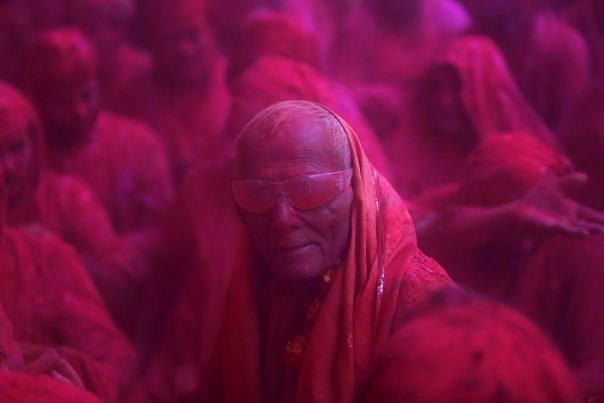
IRS Calls Video A Mistake
'Star Trek' Parody
Nobody's going to win an Emmy for a parody of the TV show "Star Trek" filmed by Internal Revenue Service employees at an agency studio in Maryland.
Instead, the IRS got a rebuke from Congress for wasting taxpayer dollars.
The agency says the video, along with a training video that parodied the TV show "Gilligan's Island," cost about $60,000. The "Star Trek" video accounted for most of the money, the agency said.
The IRS said Friday it was a mistake for employees to make the six-minute video. It was shown at the opening of a 2010 training and leadership conference but does not appear to have any training value.
'Star Trek' Parody
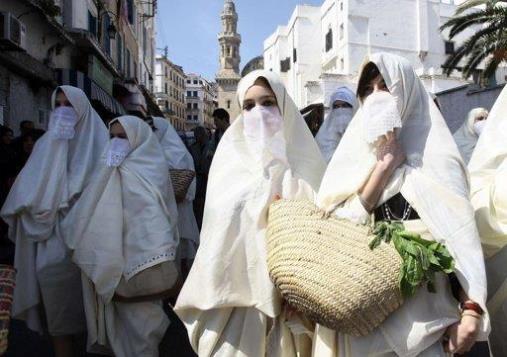
Sneaks Through Senate
'Monsanto Protection Act'
When the Senate passed a budget resolution Wednesday that appears to prevent some of the potential damage from sequestration, the Continuing Resolution included several food- and agriculture-related earmarks.
But one inclusion in particular is especially controversial. The "biotech rider" would require the USDA to approve the harvest and sale of crops from genetically modified seed even if a court has ruled the environmental studies on the crop were inadequate. This aspect of the bill infuriated many sustainable food and agriculture groups, who nicknamed the bill the "Monsanto Protection Act."
If signed into law by President Obama, here's what the rider would do: It will allow farmers to plant, harvest and sell genetically engineered plants even if the crops have been ruled upon unfavorably in court. A Center for Food Safety statement called the rider "an unprecedented attack on U.S. judicial review of agency actions" and " a major violation of the separation of powers."
But perhaps more frightening, other critics say, is that the rider threatens the health and wellbeing of the public by undermining the federal courts' ability to protect farmers and the environment from potentially hazardous genetically engineered (GE) crops.
The rider was slipped into the bill while it sat in the Senate Appropriations Committee, chaired by Maryland Democrat Barbara Mikulski. According to the Center for Food Safety, the committee held no hearings on this controversial biotech rider and many Democrats were unaware of its presence in the larger bill.
'Monsanto Protection Act'

Buckeye Chuck's Boys Bitch
Punxsutawney Phil
Famed groundhog Punxsutawney Phil might want to go back into hibernation.
Authorities in still-frigid Ohio have issued an "indictment" of the furry rodent, who predicted an early spring when he didn't see his shadow after emerging from his western Pennsylvania lair on Feb. 2.
"Punxsutawney Phil did purposely, and with prior calculation and design, cause the people to believe that spring would come early," Mike Gmoser, the prosecutor in southwestern Ohio's Butler County, wrote in an official-looking indictment.
Gmoser wrote that Punxsutawney Phil is charged with misrepresentation of spring, which constitutes a felony "against the peace and dignity of the state of Ohio."
Gmoser's indictment made no mention of a possible co-conspirator in the false prediction of early spring, Ohio's own forecasting groundhog, Buckeye Chuck.
Punxsutawney Phil
In Memory
Chinua Achebe
The opening sentence was as simple, declarative and revolutionary as a line out of Hemingway:
"Okonkwo was well known throughout the nine villages and even beyond," Chinua Achebe wrote in "Things Fall Apart."
Africans, the Nigerian author announced more than 50 years ago, had their own history, their own celebrities and reputations. Centuries of being defined by the West were about to end, a transformation led by Achebe, who continued for decades to rewrite and reclaim the history of his native country.
Achebe, the internationally celebrated Nigerian author, statesman and dissident, died at age 82 in Boston on Thursday after a brief illness. He lived through and helped define traumatic change in Nigeria, from independence to dictatorship to the disastrous war between Nigeria and the breakaway country of Biafra in the late 1960s. He knew both the prestige of serving on government commissions and the fear of being declared an enemy of the state. He spent much of his adult life in the United States but never stopped calling for democracy in Nigeria or resisting literary honors from a government he refused to accept.
In traffic today in Lagos, Nigeria's largest city, hawkers sell pirated copies of his recent memoir about the Biafra war, "There Was a Country."
"What has consistently escaped most Nigerians in this entire travesty is the fact that mediocrity destroys the very fabric of a country as surely as a war - ushering in all sorts of banality, ineptitude, corruption and debauchery," wrote Achebe, whose death was confirmed by Brown University, where he taught.
His eminence worldwide was rivaled only by Gabriel Garcia Marquez, Toni Morrison and a handful of others. Achebe was a moral and literary model for countless Africans and a profound influence on such American-based writers as Ha Jin, Junot Diaz and Morrison, who once called Achebe's work an "education" for her and "liberating in a way nothing had been before."
His public life began in his mid-20s, when Nigeria was still under British rule. He was a resident of London when he completed his handwritten manuscript for "Things Fall Apart," a short novel about a Nigerian tribesman's downfall at the hands of British colonialists.
Turned down by several publishers, the book was finally accepted by Heinemann and released in 1958 with a first printing of 2,000. Its initial review in The New York Times ran less than 500 words, but the novel soon became among the most important books of the 20th century, a universally acknowledged starting point for postcolonial, indigenous African fiction, the prophetic union of British letters and African oral culture.
"It would be impossible to say how 'Things Fall Apart' influenced African writing," the African scholar Kwame Anthony Appiah once observed. "It would be like asking how Shakespeare influenced English writers or Pushkin influenced Russians. Achebe didn't only play the game, he invented it."
"Things Fall Apart" has sold more than 8 million copies worldwide and has been translated into more than 50 languages. Achebe also was a forceful critic of Western literature about Africa, especially Joseph Conrad's "Heart of Darkness," standard reading for millions, but in Achebe's opinion, a defining example of how even a great Western mind could reduce a foreign civilization to barbarism and menace.
His first novel was intended as a trilogy and the author continued its story in "No Longer At Ease" and "Arrow of God." He also wrote short stories, poems, children's stories and a political satire, "The Anthills of Savannah," a 1987 release that was the last full-length fiction to come out in his lifetime. Achebe, who used a wheelchair in his later years, would cite his physical problems and displacement from home as stifling to his imaginative powers.
Achebe never did win the Nobel Prize, which many believed he deserved, but in 2007 he did receive the Man Booker International Prize, a $120,000 honor for lifetime achievement. Achebe, paralyzed from the waist down since a 1990 auto accident, lived for years in a cottage built for him on the campus of Bard College, a leading liberal arts school north of New York City where he was a faculty member. He joined Brown in 2009 as a professor of languages and literature.
Achebe, a native of Ogidi, Nigeria, regarded his life as a bartering between conflicting cultures. He spoke of the "two types of music" running through his mind, Ibo legends and the prose of Dickens. He was also exposed to different faiths. His father worked in a local missionary and was among the first in their village to convert to Christianity. In Achebe's memoir "There Was a Country," he wrote that his "whole artistic career was probably sparked by this tension between the Christian religion" of his parents and the "retreating, older religion" of his ancestors. He would observe the conflicts between his father and great uncle and ponder "the essence, the meaning, the worldview of both religions."
For much of his life, he had a sense that he was a person of special gifts who was part of a historic generation. Achebe was so avid a reader as a young man that his nickname was "Dictionary." At Government College Umuahia, he read Shakespeare, Dickens, Robert Louis Stevenson and Jonathan Swift among others. He placed his name alongside an extraordinary range of alumni - government and artistic leaders from Jaja Wachukwa, a future ambassador to the United Nations; to future Nobel laureate Wole Soyinka; Achebe's future wife (and mother of their four children) Christine Okoli; and the poet Christopher Okigbo, a close friend of Achebe's who was killed during the Biafra war.
After graduating from the University College of Ibadan, in 1953, Achebe was a radio producer at the Nigerian Broadcasting Corp., then moved to London and worked at the British Broadcasting Corp. He was writing stories in college and called "Things Fall Apart" an act of "atonement" for what he says was the abandonment of traditional culture. The book's title was taken from poet William Butler Yeats' "The Second Coming," which includes the widely quoted line, "Things fall apart; the centre cannot hold."
His novel was nearly lost before ever seen by the public. When Achebe finished his manuscript, he sent it to a London typing service, which misplaced the package and left it lying in an office for months. The proposed book was received coolly by London publishers, who doubted the appeal of fiction from Africa. Finally, an educational adviser at Heinemann who had recently traveled to west Africa had a look and declared: "This is the best novel I have read since the war."
In mockery of all the Western books about Africa, Achebe ended "Things Fall Apart" with a colonial official observing Okonkwo's fate and imagining the book he will write: "The Pacification of the Primitive Tribes of the Lower Niger." Achebe's novel was the opening of a long argument on his country's behalf.
Achebe could be just as critical of his own country. The novels "A Man of the People" and "No Longer at Ease" were stories of corruption and collapse that anticipated the Nigerian civil war of 1967-70 and the years of mismanagement that followed. He not only supported Biafra's independence, but was a government envoy and a member of a committee that was to write up the new and short-lived country's constitution. He would flee from Nigeria and return many times and twice refused the country's second-highest award, the Commander of the Order of the Federal Republic, over the lawlessness in his home state of Anambra.
In 2011, Nigeria's presidency said Achebe's refusal "clearly flies in the face of the reality of Nigeria's current political situation." Achebe responded that "A small clique of renegades, openly boasting its connections in high places, seems determined to turn my homeland into a bankrupt and lawless fiefdom."
"I had a strong belief that we would outgrow our shortcomings under leaders committed to uniting our diverse peoples," Achebe warned.
Besides his own writing, Achebe served for years as editor of Heinemann's "African Writer Series," which published works by Nadine Gordimer, Stephen Biko and others. He also edited numerous anthologies of African stories, poems and essays. In "There Was a Country," he considered the role of the modern African writer.
Chinua Achebe

| CURRENT MOON lunar phases |


